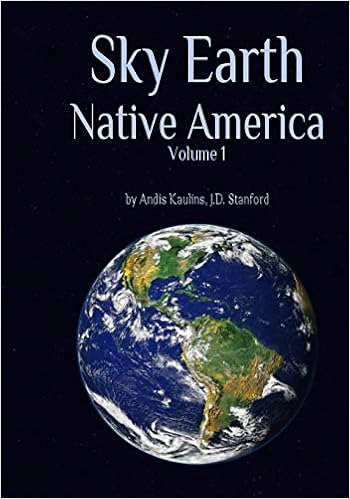Caitlin Graf, VP, Communications, The Nation Magazine, has sent out the following newsletter message, and we pass it on here in full noting that the Nation has published a special issue that deals with the performance of the United States Supreme Court over the last decade.
"Tuesday, September 29, marks the tenth anniversary of John Roberts' appointment as Chief Justice of the United States. In anticipation, The Nation is publishing "The Case Against The Roberts Court: A Decade of Justice Undone," a special issue in collaboration with the Alliance for Justice (AFJ).
Why the spotlight? The lead up to the 2016 election marks a cardinal moment for justice in America: with four Supreme Court justices in or entering their 80s during this term, the next president will have the power to define the course of the Court for future generations.
As with The Nation's 2012 special issue on "The One Percent Court," "The Case Against The Roberts Court"
exposes the extreme politicization of the purportedly impartial
institution -- and reveals the devastating consequences of its decisions
for everyday Americans.
Bringing together ten of the foremost legal scholars, commentators, and practitioners in the US, the collection offers a chronological assessment of the most consequential and controversial conservative decisions -- one per year -- issued by the Court.
"The result," write Nan Aron and Kyle C. Barry in their introduction, "is a wide-angle portrait that thoroughly debunks the myth of Roberts as unbiased umpire. Rather than provide 'equal justice under law,' Roberts has led a narrow conservative majority that consistently favors the privileged and powerful (especially corporations) at the expense of everyone else (especially women, workers, consumers, people of color, and the accused)."
Ultimately, this unrelenting conservatism of the Roberts Court is evident across three sweeping arenas.
1. An abiding suspicion of race-conscious efforts to ameliorate discrimination:
- Paul Butler reviews how the Court granted police officers extraordinary, unconstitutional power by rendering the "exclusionary rule" toothless;
- William Yeomans explores how it stymied public school integration in a reversal of decades of equal-protection law;
- Theodore M. Shaw reports on the gutting of the Voting Rights Act;
- George H. Kendall questions whether the death penalty is even constitutional.
2. Consistent favoring of capitalism over America's citizenry:
- Dorothy Samuels reports on the ludicrous and dishonest reading of the Second Amendment in ruling on gun control;
- Senator Sheldon Whitehouse reflects on the equally implausible argument of Citizens United;
- Dahlia Lithwick assesses the gross extension of "religious liberty" as an excuse to deny women's rights.
3. A persistent skepticism of the need for judicial redress for victims of state or corporate wrongs:
- Arthur R. Miller shows how the scales of justice have been tipped against citizen access in favor of corporate interests;
- Herman Schwartz identifies two concurrent rulings that undermine and obstruct class action rulings;
- Lily Eskelsen García evaluates rampant union-busting.
Yet with the dissenting opinion, Nation legal affairs correspondent David Cole opts for a silver lining, writing: "Given the lopsided Republican advantage in appointments over the last half-century, it's not surprising that the Court has reached many conservative results. The surprise, rather, is that the Court has also issued a significant number of liberal decisions in recent decades. . . . On this closely divided Court, outcomes are determined not by the most extreme but by the most centrist justice.
Convention dictates that we call it the Roberts Court, but in truth
this is the Kennedy Court. And Kennedy has voted with the liberals on
issues of speech, sexuality, the death penalty, and the rights of enemy
combatants, while siding with the conservatives on issues of racial
discrimination, federal power, and access to courts."
Full contents of the special issue are listed and linked below; select contributors available for interview.
Published in partnership with the Alliance for Justice
Available for interview from Washington, DC
In
the decade since John Roberts was appointed chief justice, the Supreme
Court has favored the powerful at the expense of everyone else.
Available for interview from Washington, DC
A Dissent: The
Court's results are mixed, not because of John Roberts's leadership but
because of Anthony Kennedy's more balanced commitments.
Available for interview from Washington, DC
Hudson v. Michigan (2006): Thanks to the Roberts Court, there's no penalty for ignoring a key 4th Amendment protection.
Parents Involved v. Seattle School District No. 1 (2007): The conservative majority rewrote decades of equal protection law in the name of a fictional color-blind Constitution.
DOROTHY SAMUELS | How the Roberts Court Undermined Sensible Gun Control
Available for interview from New York City
District of Columbia v. Heller (2008): Why did the conservative justices, who seem so devoted to "originalism," upend the well-established meaning of the 2nd Amendment?
Ashcroft v. Iqbal (2009): By
rewriting the rules for civil complaints, the Supreme Court denied
access to poor and middle-class people -- and handed a big gift to
corporate interests.
Available for interview from Washington, DC
Citizens United v. FEC (2010): In order to get the ruling they wanted, the conservative justices had to ignore an extensive record on political corruption.
Wal-Mart v. Dukes and AT&T Mobility v. Concepcion (2011): Class actions were the weapon of the people-until the Roberts Court made it nearly impossible to file one.
Knox v. SEIU (2012): For decades the Supreme Court supported rules to protect collective bargaining. That era is over.
Shelby County v. Holder (2013): The
Supreme Court said that times have changed. So why were 180 restrictive
voting laws passed after it gutted the Voting Rights Act?
Burwell v. Hobby Lobby (2014):
The ruling has enabled corporations and Christian zealots to claim
"religious liberty" as an excuse to deny women's rights and skirt the
law.
Glossip v. Gross (2015):
Following a controversial ruling over lethal injections, Justice Breyer
suggested that capital punishment may violate the 8th Amendment. It's
time to bring that case to court.
ABOUT THE NATION
Founded in 1865 and currently celebrating its 150th anniversary, The Nation is
America's oldest weekly magazine, serving as a critical, independent
voice in American journalism and a platform for investigative reporting
and spirited debate on issues of import to the progressive
community. Through changing times and fashions, The Nation and
TheNation.com offer consistently informed and inspired reporting and
analysis of breaking news, politics, social issues and the arts-never
faltering in our editorial commitment to what Nation Publisher
Emeritus Victor Navasky has called "a dissenting, independent,
trouble-making, idea-launching journal of critical opinion."
ABOUT ALLIANCE FOR JUSTICE (AFJ)
Alliance
for Justice believes that all Americans have the right to secure
justice in the courts and to have their voices heard when government
makes decisions that affect their lives. We are a national association
of over 100 organizations, representing a broad array of groups
committed to progressive values and the creation of an equitable, just,
and free society.
AFJ
works to ensure that the federal judiciary advances core constitutional
values, preserves human rights and unfettered access to the courts, and
adheres to the even-handed administration of justice for all Americans.
It is the leading expert on the legal framework for nonprofit advocacy
efforts, providing definitive information, resources, and technical
assistance that encourages organizations and their funding partners to
fully exercise their right to be active participants in the democratic
process.
###
.....................
Caitlin Graf
VP, Communications
The Nation Magazine
Instigating Progress Since 1865


